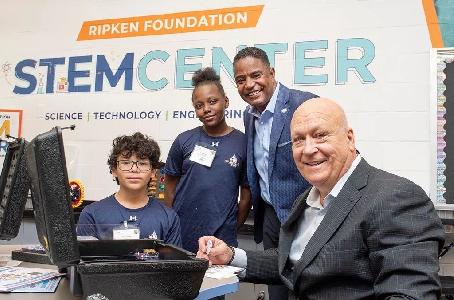By now, it’s a given that the technology that helps industries get more specific and efficient with their work will advance. The businesses seeking to bring those innovations to companies can sustain amid changes if they’re adding new capabilities along the way, and have a sense of the right timing to introduce them. A couple other ingredients: a niche that provides a competitive advantage, and culture that can bounce back from challenges.
Columbia-based data and software integration company Skyward Apps is marking 10 years in business this month, and its trajectory shows how software development can change as industry needs grow.
The advances in mobile technology that led to the company’s origin date back further than a decade. CEO Nick Elliott began his career working with ZedX, a company specializing in tech for the agricultural industry. When he started 20 years ago, the available technology was PalmPilots. The consumer-facing technology showed promise for helping farmers to more easily capture and track key data. But when it got into the field, they found it didn’t yet work right. Elliott went on to work with Microsoft, but this early experience planted a seed.
By the end of the decade, the iPhone was out, and Elliott started reconnecting with some of his old colleagues. Like many others in society at the time, they recognized how the Apple device marked a leap forward in the computing technology that could be available in a mobile device: “This is the generation that could really achieve what we’d been trying to do five to six years earlier,” Elliott said.
In the case of agriculture, a smartphone in the pocket of someone driving a tractor could prove to carry the kinds of data collection applications that allowed farmers to gather insights not just about the tractor itself, but also the field where it was driving. It proved to be powerful, as farmers sought ways to get more specific about everything from crop spray locations to weather patterns.
Skyward Apps has found its niche working with leaders in the space. Its website lists projects like a seed selection tool for Syngenta, and mobile apps for SST Software and AgIntegrated. While it works in other industry areas, too, Elliott said the focus is oriented toward helping to grow better food and create a more sustainable environment. Along the way, the custom approach that’s taken by a services company has continued to make sense. Farmers tend to have a personal bond with their land that informs the technology they need.
“We get to work not just as a product development company but also as a consulting company and work hand in hand with companies in the agriculture space,” Elliott said.
Plus, farmers are using a lot of apps these days, and the technology that can help them has moved forward. In one of the earlier advances, the iPhone release of devices that talk to USB thumbdrives proved to be a “revolution” for agriculture, Elliott said. It might’ve seemed like a nice-to-have for consumers with a digital camera. But for agriculture, suddenly it was possible to pull data directly from a smartphone that was on a tractor.
Skyward has sought to advance its own capabilities along with it. Elliott said it has the full stack of development, including writing and maintaining the databases and cloud infrastructure that those applications are talking to. It accounts for a time when what’s possible in agriculture has advanced.

Nick Elliott, CEO of Skyward Apps.
“Now we’re at the point where you can send a live feed of data to instruct that tractor where to go,” he said.
And it’s still moving forward. For one, it’s driven by more data being available, and advances in machine learning to make sense of that data and pull predictions. The company is doing more work around visualizing the data that’s collected in a way that anyone can understand, and ultimately help to make decisions. Now a map of a field can function like a heat map, bringing together particular dynamics that inform how effective it will be for growing certain crops. Alongside the tractors and machinery of the farm, there’s also more development of hardware that operates in the digital sphere, from drones that can analyze fields from above to sensors that function on the ground.
Elliott believes the pandemic year has also demonstrated a lot about the importance of the food supply chain. From the planting, growing, transportation and tracking of the food, it’s all one system. He’s seen more of a push to “connect all of the pieces together so it can be a more robust overall system.”
For the Skyward Apps team, the disruptions to working that many have experienced stretched back further than the last year. In September 2019, a gas explosion ripped through the company’s previous office in the Lakeside Office complex. No one was injured, but the office was destroyed. The team worked remotely for the remainder of 2019, and moved into new offices across the street in February of 2020. The next month, the pandemic arrived and remote work resumed. But the team had continued working, with remote processes already built and good experience on how to make the whole thing a bit more human to build on.
Going forward, the 13-person team is looking to grow in the near future. Elliott said the company is finding its services in demand, as it seeks to bring the experience it has gained to new technology advances.
Join the conversation!
Find news, events, jobs and people who share your interests on Technical.ly's open community Slack

Baltimore daily roundup: Medtech made in Baltimore; Sen. Sanders visits Morgan State; Humane Ai review debate

Baltimore daily roundup: The city's new esports lab; a conference in Wilmington; GBC reports $4B of economic activity

Baltimore daily roundup: Find your next coworking space; sea turtle legislation; Dali raided and sued


